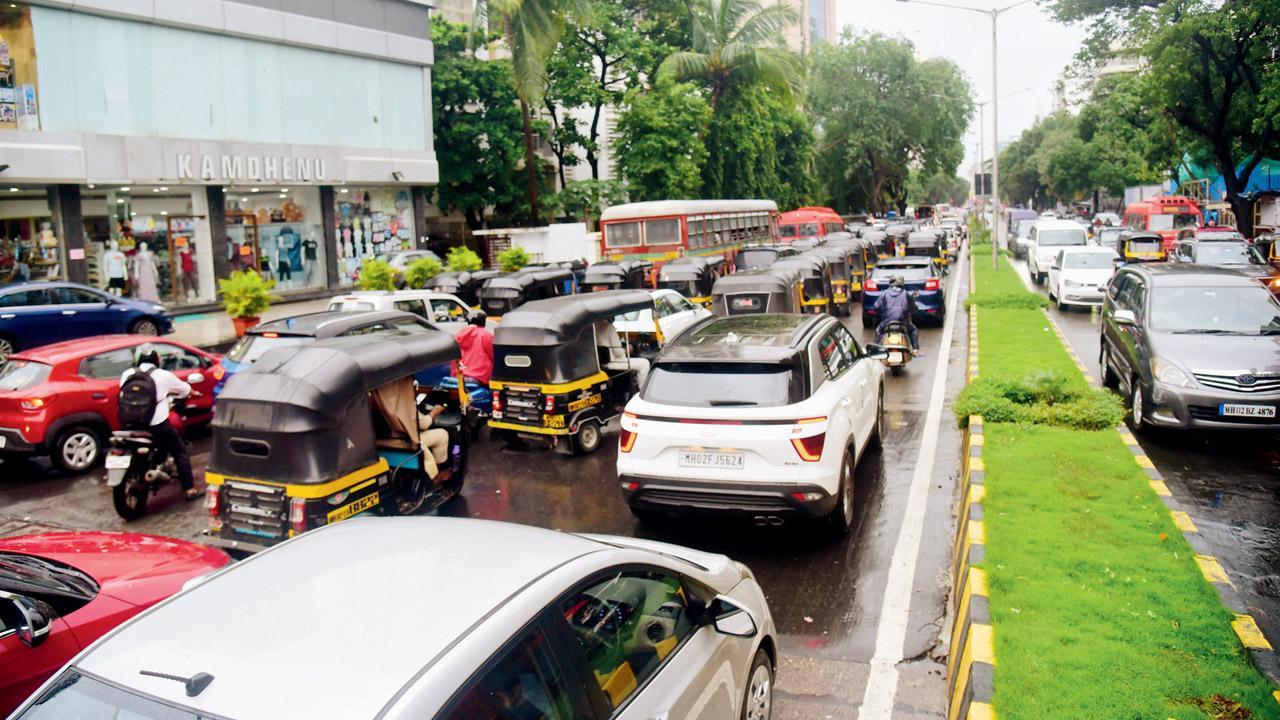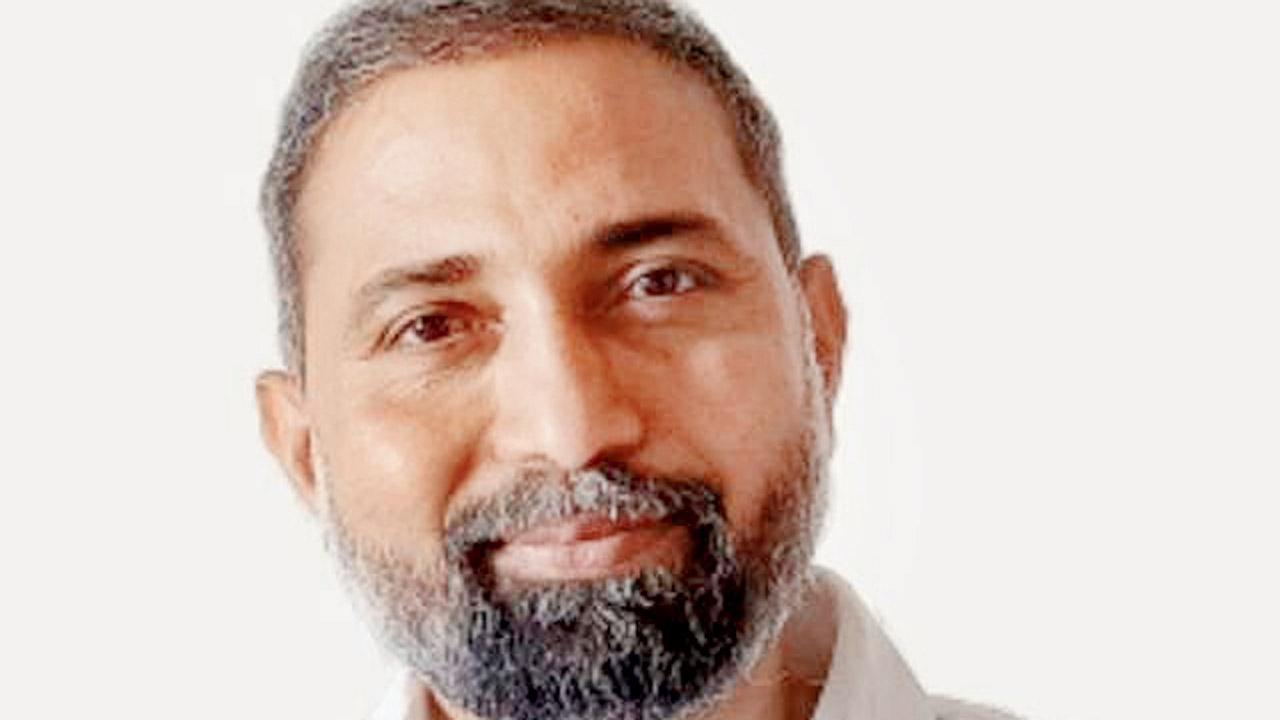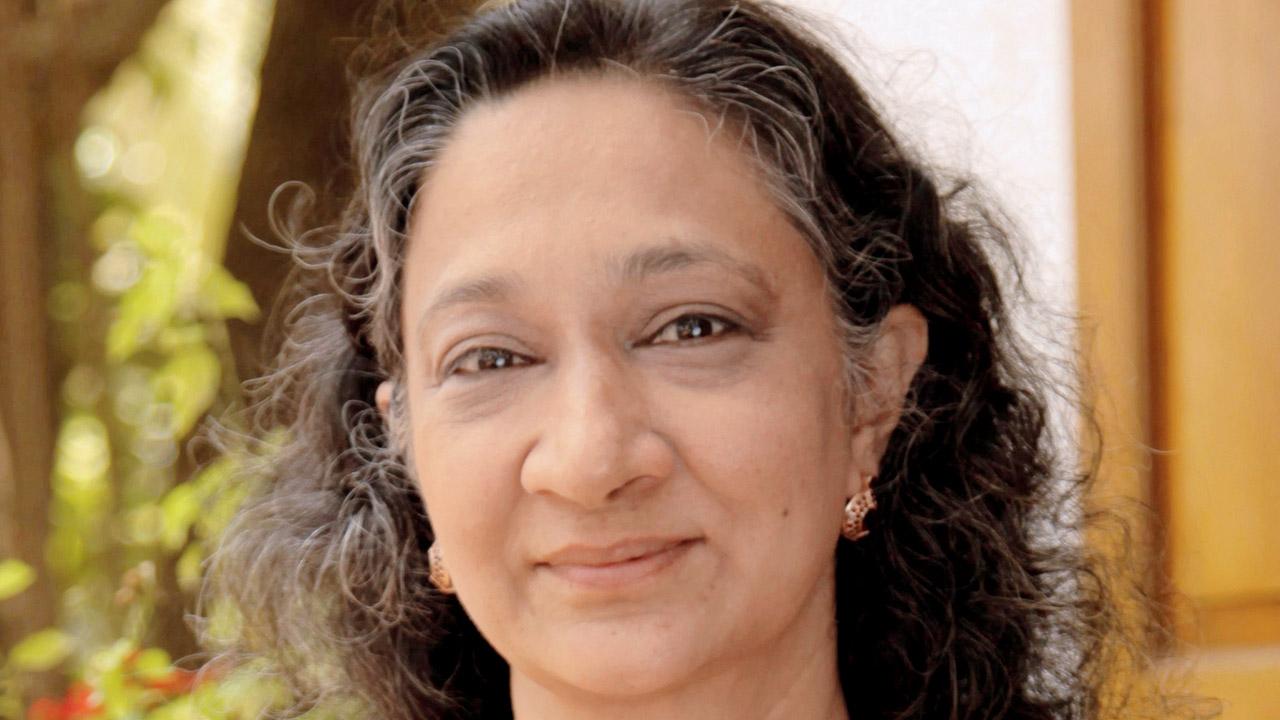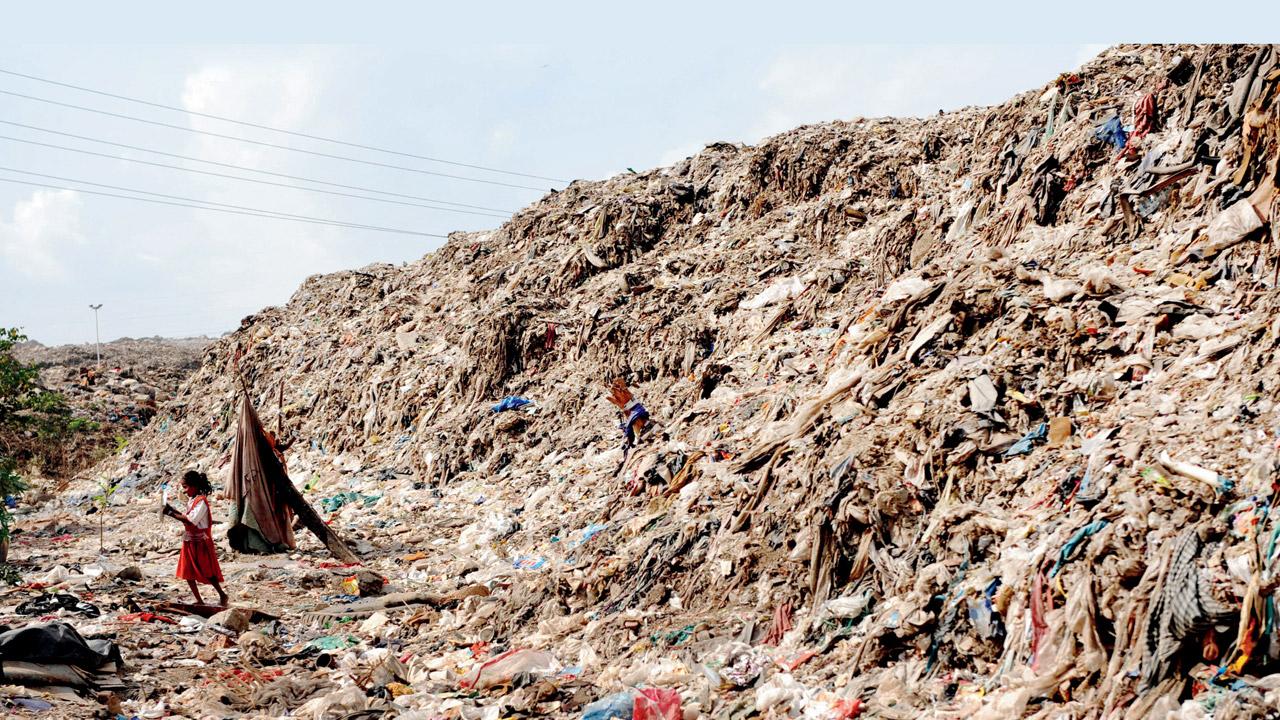As the BMC budget for 2022-23 was presented, mid-day reached out to experts, environmentalists and activists working on issues like air pollution, biodiversity conservation, climate change and electric mobility. Here’s their take

Vehicles caught in a massive jam on JP Road in Andheri, on July 19, 2021. Pic/Shadab Khan
Bhagwan Kesbhat, Founder, Waatavaran Foundation
ADVERTISEMENT

Air monitoring at the neighbourhood level is critical for determining the impact of exposure on Mumbaikars. The announcement of 128 sensor-based systems to monitor air quality and provide real-time AQI data within 4 sq km each is a welcome move. Having the complete city’s network in one place, including MPCB, SAFAR, and BMC, will have a greater synergistic impact in combating air pollution as a valued asset. It will make this city’s air quality network the largest in India. A network of 100 EV charging stations across Mumbai is insufficient. While BMC seems keen on pushing EVs, there is an urgent need for a dedicated cell whose only work should be to push for electric mobility infrastructure across all wards. This cell could promote solar rooftop installation and better incentivise renewables.
Dr Anjal Prakash, Bharti Institute of Public Policy-ISB, lead author of the chapter on cities, settlements and key infrastructure of the IPCC’s 6th Assessment Report

Now that Mumbai has its own Climate Action Plan and also has dedicated funds for its Climate Cell, there should be ward-wise assessment of impacts as well as solutions to deal with extreme weather events, floodings, sea-level rise, cyclones, storm surge and other natural disasters. BMC has allocated funds under its Multi-Hazard Vulnerability Risk Assessment (MHVRA) of Mumbai City & Suburb but it has not identified the sectors and hence mapping will be crucial by involving the civil society.
Debi Goenka, Executive Trustee, Conservation Action Trust

Despite the huge concerns about climate change, sea-level rise, and the resultant flooding of Mumbai city, this budget is based on a “Business as usual” model. Capital-intensive projects that are at risk because of climate change are still being planned. A floating solar plant is being proposed in the middle of a wildlife sanctuary. Though there is mention of a sensor-based air monitoring network, there is no budgetary provision for the same. The tunnel under SGNP is being budgeted for, even though there is no clearance for the same, and two Metro projects will be running parallel to these proposed tunnels. This shows that the BMC has no intention of getting cars off the roads of Mumbai. Buying electric buses is not going to help if there is no space on our roads for these buses. EVs powered by coal-fired power stations is not going to help in any case.
Stalin D, Director, Vanashakti

This budget seems to highlight a welcome shift by the BMC to spend money on environmental issues. As far as climate change resilience is concerned, there needs to be a separate allocation for coastal zones, wetlands, water bodies, etc. and not a general allotment. All in all, it is a positive approach but knowing BMC, there should be a separate body for disbursal of funds and accountability. BMC needs to make provisions for an environmental officer who can assess these requirements and disburse the funds appropriately. Also, I hope that infrastructure projects like Goregaon Mulund Link Road are redesigned and executed in a manner that does not harm the flora fauna of SGNP.
Sumaira Abdulali, Convener, Awaaz Foundation

The highest expenditures in the budget focuses on executing cement-concrete roads which will cause huge environmental damage. These include the Coastal Road for which the CRZ laws were amended. Though the budget strives towards ease of living, it continues to place major thrusts on projects that have already caused big disruption to people’s quality of life, destroyed the coastal environment, and taken air and noise pollution beyond safe limits. It is unfortunate that the BMC’s highest budgetary expenditure, instead of focusing on priority areas like environmental pollution, which their projects are worsening, focuses on destructive infra projects. In this time of climate change and our government’s aspiration to lead the world in meeting C-40 cities targets, I would have hoped to see environmental safeguards lead in the budgetary provisions.
Politicians’ take
Prabhakar Shinde, group leader, BJP
‘The budget is highly dependent on the reserve fund and will lead the city to bankruptcy. The authorities who built the Urdu Bhavan forgot about Marathi Bhasha Bhavan, Warkari Bhavan and Dabawala Bhavan. The GMLR project has been stalled for the last four years. It has been observed that funds for various projects are not being utilised’
Rakhi Jadhav, group leader, NCP
‘Mumbaikars got better healthcare facilities in two years during the pandemic, but they expect a better health system. Though there is a provision, it is a slow start. While announcing and planning major projects, rehabilitation should also be considered’
Ravi Raja, Leader of Opposition
‘Why does only Coastal Road get the priority? Why is the budget for roads, health, and education on the lower side? We are not against the Coastal Road but other projects should have received equal treatment. It is wrong to charge users for creating waste. This budget is not in the interest of Mumbaikars’
Yashwant Jadhav, chairman, standing committee
‘Today’s budget is for the progress and future of Mumbai. It emphasises education and health. It has been increased by 17% even during the challenging time of the pandemic. Measures have been taken to increase revenue’
Kishori Pednekar, mayor
‘The budget is development oriented and environment friendly. Even though the Centre gets the highest revenue from Mumbai, it didn’t mention any scheme for Mumbai in the Union budget’
Efforts towards greener, cleaner Mumbai

>> Rs 1 crore to create a Climate Action Cell
>> 128 sensor-based systems to be installed to provide real-time data on AQI
>> e-sweeping vehicles to be introduced to cut net carbon emisison
>> Upgrade of cemeteries, use PNG instead of wood; Rs 86.79 earmarked
>> More plantation using Miyawaki method; 3 lakh trees already planted; 4 lakh aimed
>> Focus on energy efficiency building code, with thrust on solar and star-qualified fixtures; Rs 5 crore set aside
>> Mumbai Parking Authority to be set up. It will have transport experts, urban planners, policy researchers; Rs 2,200 crore earmarked
>> Rs 200 allocated for rejuvenation of Dahisar, Poisar, Oshiwara/Walbhat rivers
>> EVs with segregation compartments to pick garbage; allocation - Rs 1,460 crore
>> Waste-to-energy plant at Deonar planned; allocation for 22-23 - Rs 75 crore
>> Biomining and disposal of 23.8 lakh tonnes of waste planned; provision - Rs 50 crore
>> Disaster management allocation - Rs 3.7 crore
>> Dasalination project (Manori) - Rs 200 crore
>> 20 MW hydropower facilities and 80 MW floating solar power project - Rs 10.3 crore
 Subscribe today by clicking the link and stay updated with the latest news!" Click here!
Subscribe today by clicking the link and stay updated with the latest news!" Click here!







